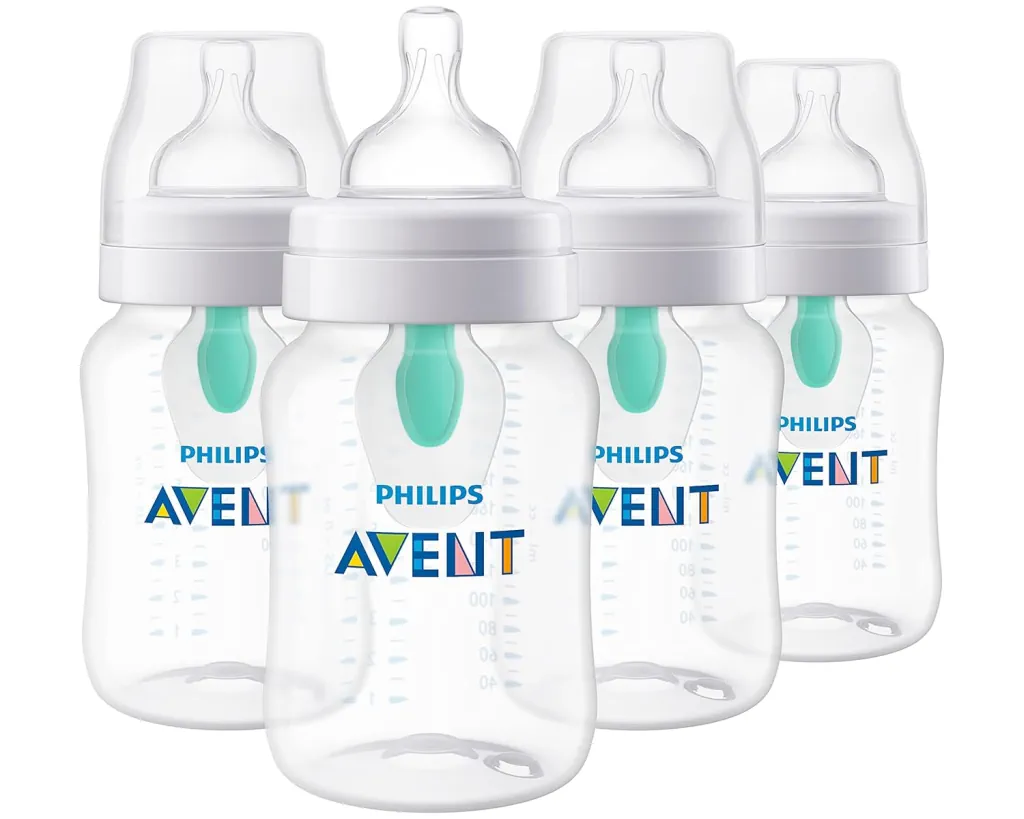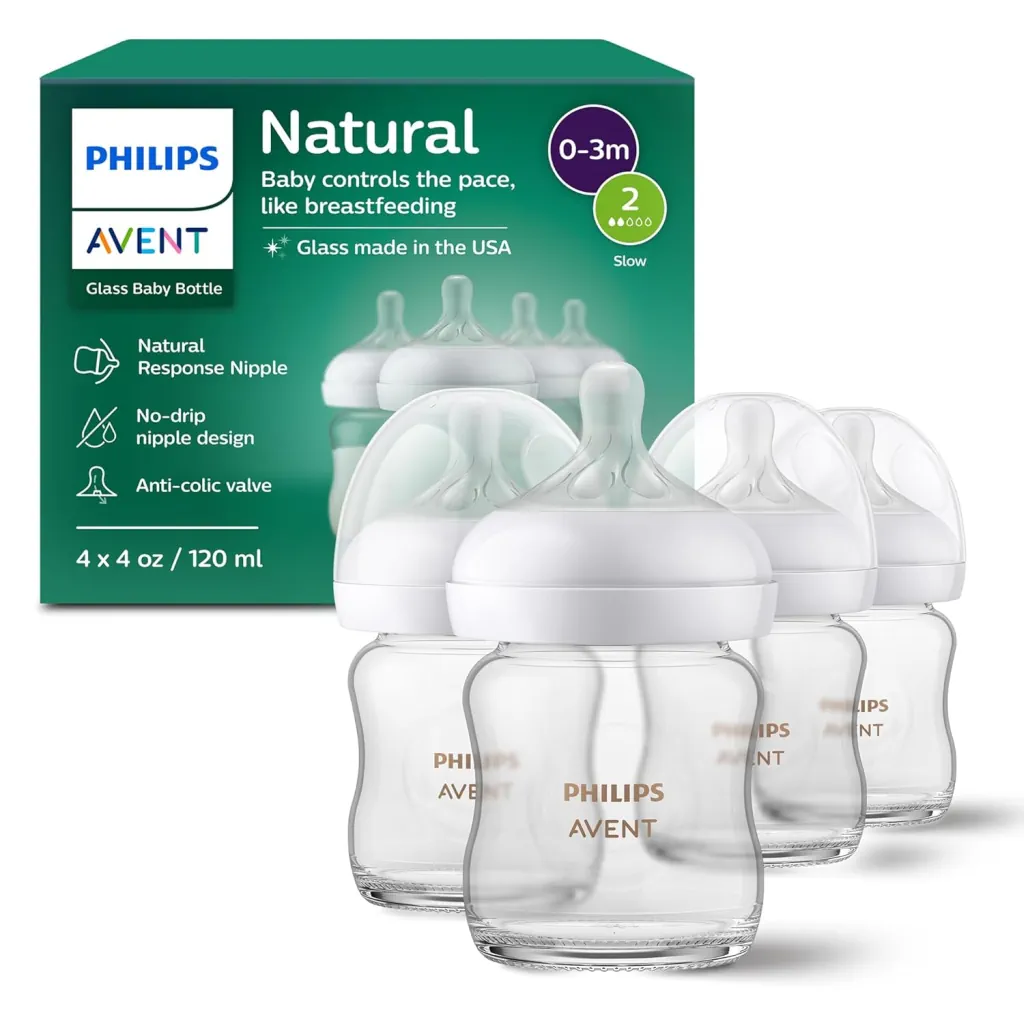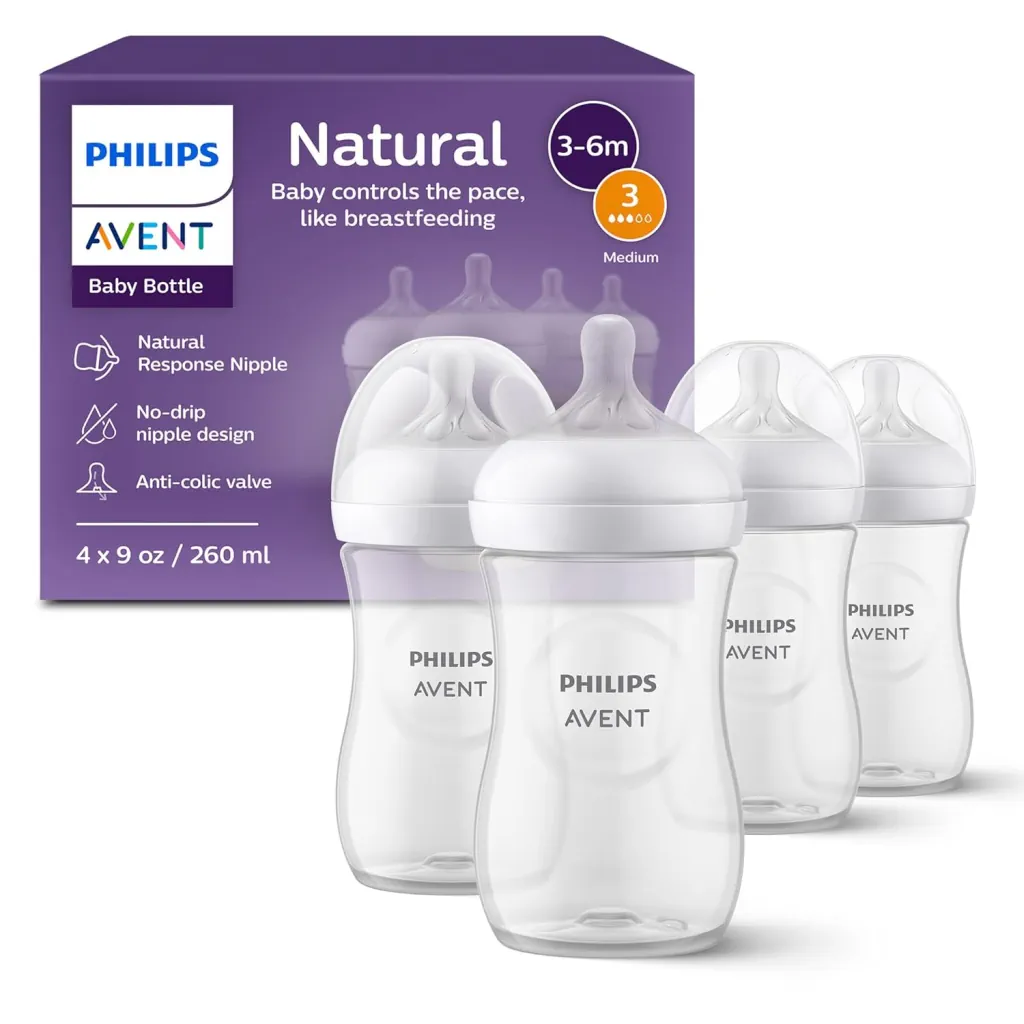Choosing the Right Bottle Material Matters
Choosing the right baby bottle is more than a matter of personal preference—it’s a crucial decision that can influence your baby’s feeding experience, health, and even your daily routine. In 2025, the market is flooded with a wide variety of bottle materials, but glass and plastic remain the most popular options. Each has its advantages and disadvantages, and the best choice depends on your baby’s needs and your lifestyle.

This guide dives deep into the differences between glass and plastic baby bottles. We compare their pros and cons, safety aspects, cost considerations, and practical implications to help you make an informed decision that prioritizes your baby’s well-being.
What Are Glass and Plastic Baby Bottles?
Glass baby bottles are typically made from borosilicate glass, known for its strength, resistance to thermal shock, and chemical stability. These bottles have been around for decades and are favored by parents who want a pure, eco-friendly, and safe feeding option.
Plastic baby bottles, on the other hand, are commonly made from BPA-free polypropylene or other food-grade plastics. They became popular due to their light weight, affordability, and shatter-resistant properties, making them a convenient choice for on-the-go parents.
Both types are available in multiple shapes, sizes, and nipple options, giving parents a wide range of choices. Understanding the core differences can help narrow down what suits your baby best.
Benefits of Glass Baby Bottles
One of the key benefits of glass baby bottles is chemical purity. Unlike some plastics, glass does not contain or leach harmful chemicals such as BPA, phthalates, or microplastics. This makes it a preferred choice among health-conscious parents who prioritize clean feeding.
Glass bottles are durable and tend to last longer, especially when made from borosilicate glass. They resist scratches and discoloration, which can harbor bacteria over time. They also retain heat better, keeping milk warm longer.
Another significant benefit is that glass bottles are easy to sterilize. They can be boiled, steamed, or run through the dishwasher at high temperatures without degrading. This makes them ideal for maintaining high hygiene standards.
Lastly, glass bottles are often seen as more environmentally friendly because they are recyclable and don’t contribute to plastic waste.
Drawbacks of Glass Baby Bottles
Despite their advantages, glass bottles come with some drawbacks. Weight is a major consideration; glass is significantly heavier than plastic, which can make feeding more tiring for both parents and babies.
Breakability is another concern. Although borosilicate glass is resistant to thermal shock, it can still crack or shatter if dropped. While many glass bottles come with silicone sleeves for added grip and protection, this doesn’t eliminate the risk entirely.

Glass bottles are generally more expensive than their plastic counterparts. While they offer long-term durability, the upfront cost can be a barrier for budget-conscious families.
Finally, glass bottles are not always ideal for travel or daycare, where durability and convenience take priority. You may find yourself needing a separate set of plastic bottles for outings.
Benefits of Plastic Baby Bottles
Plastic baby bottles are praised for their lightweight and unbreakable nature, which makes them especially convenient for travel, daycare, or outings. They’re easy to carry, handle, and pack without worrying about accidental drops.
These bottles are usually more affordable, allowing parents to purchase multiple bottles without stretching their budget. This can be helpful for families who need many bottles on hand, especially during the first few months of frequent feeding.
Plastic bottles also offer greater variety in terms of shapes, sizes, colors, and designs. Many come with ergonomic grips or measurement markings that can fade over time but offer convenience when new.
Most importantly, modern plastic bottles are BPA-free and regulated, meaning they meet strict safety standards. With proper care, they are generally safe and effective for feeding infants.
Drawbacks of Plastic Baby Bottles
Plastic bottles, while practical, come with notable drawbacks. Over time, they tend to scratch and cloud, making them harder to clean thoroughly and more prone to bacterial buildup. They also degrade faster, requiring more frequent replacement.
Another concern is chemical leaching, particularly when bottles are exposed to heat or microwaved. Even BPA-free plastics may release other unknown compounds under stress, though this is less common with high-quality products.
Plastic bottles can retain odors and stains, especially when used with formula or certain medications. This affects the longevity and cleanliness of the bottle.

From an environmental perspective, plastic bottles are less sustainable. They contribute to landfill waste and are rarely recycled properly, making them a less eco-friendly option compared to glass.
Safety Comparison: Are Both Glass and Plastic Bottles Safe?
Both glass and plastic bottles are considered safe if used correctly and manufactured under modern safety standards. The FDA and EU have strict regulations on baby feeding products, and most reputable brands comply with these.
Glass bottles are inherently free from chemicals and are easier to keep sterile, giving them an edge in long-term safety. However, their fragility introduces a different kind of risk—injury from breakage.
Plastic bottles, when made from BPA-free and phthalate-free materials, are generally safe. That said, they require more vigilance in handling and cleaning to avoid chemical exposure and bacterial buildup. Always avoid microwaving plastic bottles and replace them if scratched or discolored.
No matter which material you choose, follow manufacturer instructions for cleaning and replacement. Use warm, soapy water or a dishwasher, and sterilize bottles regularly to ensure safety.
Practical Considerations for Parents
When choosing between glass and plastic bottles, consider your daily routine and lifestyle:
- Are you mostly feeding at home? Glass may be ideal for its purity and ease of sterilization.
- Do you travel often or send bottles to daycare? Plastic might be more practical and less risky.
- Do you plan to reuse bottles for future children? Glass bottles may last longer.
- Are you on a tight budget? Plastic bottles offer a more affordable solution upfront.
Many parents find a hybrid approach works best—using glass at home and plastic when out and about. Some even try silicone-wrapped glass bottles, which offer the best of both worlds.
Pay attention to your baby’s preferences as well. Some infants respond better to specific bottle weights or nipple materials. Trial and observation often lead to the right choice.
Recommendations Based on Your Needs
Every family is different, so here are tailored recommendations:
- Best for chemical-conscious parents: Go with borosilicate glass bottles.
- Best for frequent travelers or daycare use: Opt for high-quality BPA-free plastic bottles.
- Best for eco-friendly families: Choose reusable glass bottles with silicone protection.
- Best for tight budgets: Stick with affordable and widely available plastic options.
You can also explore hybrid bottles or start with a small sample of both types to see which works best for your baby’s feeding habits.
FAQs About Glass and Plastic Baby Bottles
Are glass baby bottles better for newborns?
Glass bottles are excellent for newborns due to their chemical purity and ability to retain heat. Their weight and fragility, however, mean parents should use them with caution or with protective sleeves.
Can plastic baby bottles be sterilized safely?
Yes, most BPA-free plastic bottles can be sterilized using steam or boiling methods. Avoid microwaving and inspect regularly for wear.
Do glass bottles retain heat longer than plastic?
Yes, glass bottles retain heat better, which helps keep milk warm longer. Just be careful not to overheat the milk during preparation.
How often should plastic bottles be replaced?
Plastic bottles should be replaced every 2 to 3 months or sooner if they become scratched, discolored, or damaged.
Are hybrid (silicone-wrapped glass) bottles a good option?
Yes, they offer the purity of glass with added durability and grip. They’re ideal for parents who want the benefits of both materials.
Conclusion: Making the Right Choice for Your Baby
Ultimately, the best baby bottle material depends on your personal preferences, budget, and lifestyle. Glass bottles offer unmatched purity, durability, and eco-friendliness, but come with weight and breakability concerns. Plastic bottles provide convenience, affordability, and versatility but may degrade faster and require careful monitoring.
Both types are safe when used as directed and come with their own set of pros and cons. The key is to understand your own priorities and test what works best for you and your baby. Whether you choose glass, plastic, or a combination of both, the right bottle can make feeding a smoother and safer experience for your little one.
Read also the article: How to Properly Bathe a Baby: Essential Safety and Care Tips for New Parents and Best Baby Strollers for Newborns in 2025: Safe, Stylish & Parent-Approved Picks and Best Diapers for Newborns in 2025 and Breastfeeding in 2025: Tips for a Successful Start
This article contains affiliate links. If you make a purchase through them, we may earn a small commission at no additional cost to you.
Note: This article is for informational purposes only and is not a substitute for professional advice. While every effort has been made to ensure that the content is accurate and useful, the portal does not guarantee the complete accuracy of all information. For specific cases and personalized solutions, we recommend consulting with a licensed professional in the relevant field.
